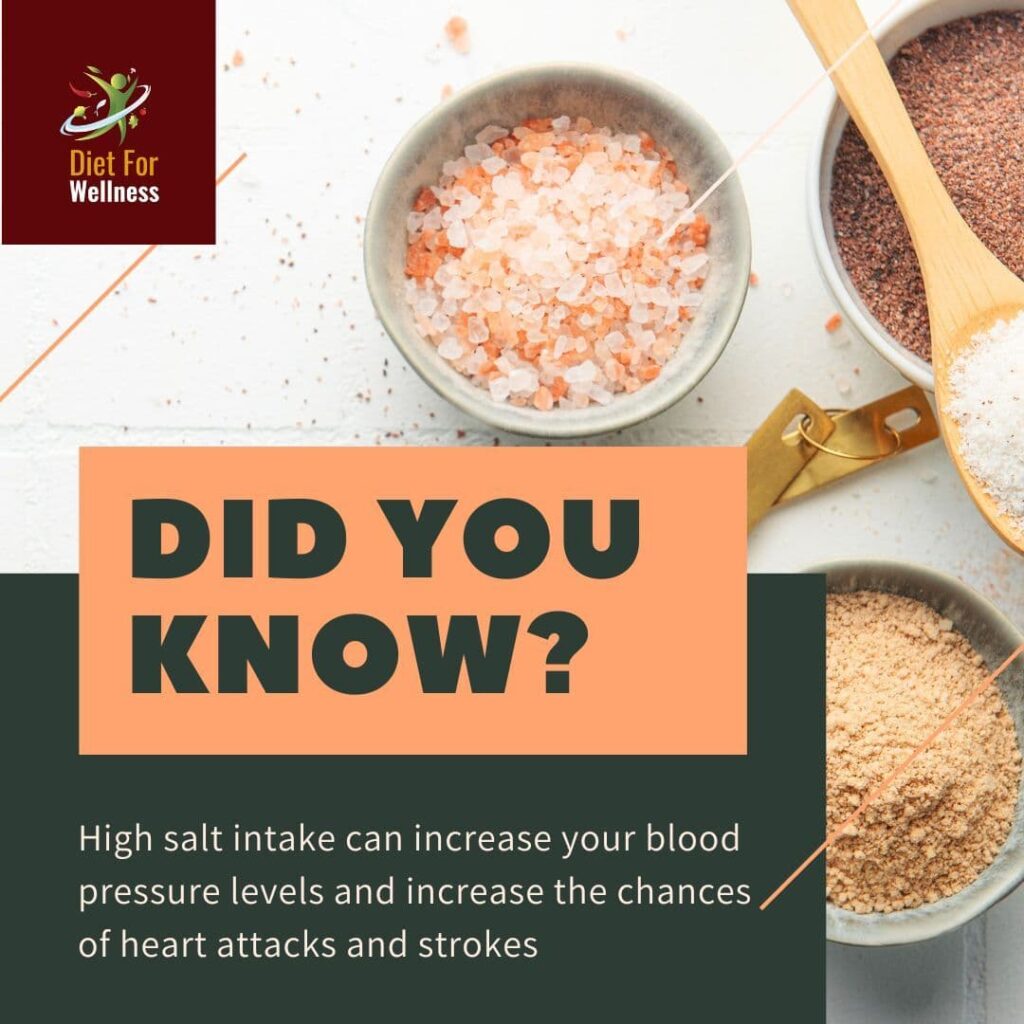Salt- The Biggest Enemy of Blood Pressure

Salt, along with sugar, is often referred to as one of the “white killers.” While the cardiovascular impact of high blood sugar is widely known, the debate surrounding the risks associated with high salt intake continues.
The relationship between salt intake and cardiovascular health isn’t a straightforward one; rather, it follows a J-shaped curve. This suggests that both significantly high and low salt intake levels are associated with adverse cardiovascular events. High salt intake affects blood pressure through water retention, vascular remodeling, and endothelial dysfunction. Conversely, the mechanisms linking low salt intake to increased mortality aren’t fully understood. However, they may involve the activation of the renin-angiotensin-aldosterone system (RAAS) and sympathetic nervous system, as well as an increase in insulin resistance.
The Basics of Blood Pressure
Blood pressure is the force that the blood exerts against the arterial walls as it flows through them. It consists of two measurements- systolic pressure (the pressure in the arteries when the heart beats) and diastolic pressure (the pressure in the arteries when the heart rests between beats). The normal blood pressure reading is around 120/80 mmHg.
Salt and Blood Pressure
Salt, or sodium chloride, plays a significant role in regulating fluid balance in the body. It’s essential for nerve function, muscle contraction, and maintaining proper hydration levels. However, excessive salt intake can lead to elevated blood pressure levels, which in turn increases the risk of cardiovascular diseases such as heart attacks and strokes.
The Mechanism Behind Salt’s Impact
The relationship between salt and blood pressure lies in its effect on the body’s fluid balance. When you consume salt, your body retains water to maintain a stable concentration of sodium in the blood. This increased fluid volume puts added pressure on the walls of the arteries, leading to elevated blood pressure levels. Over time, this can strain the heart and damage blood vessels, increasing the risk of hypertension and other cardiovascular complications.
The Role of Genetics and Individual Variability
While excessive salt intake is a known risk factor for hypertension, it’s essential to recognize that individual responses to salt vary. Some people are more sensitive to the effects of salt on blood pressure than others. Genetic factors, age, race, and underlying health conditions can all influence how your body responds to salt. However, regardless of individual variability, reducing salt intake can benefit overall cardiovascular health.
The Importance of Dietary Modifications
Given the widespread consumption of processed and restaurant foods high in salt, reducing salt intake can be challenging. However, making conscious dietary modifications can help lower blood pressure and reduce the risk of cardiovascular diseases.
Listed below are some tips for reducing salt intake.
1. Read food labels- Be mindful of the salt content in packaged foods and opt for low-sodium or sodium-free options whenever possible.
2. Cook at home- Cooking meals from scratch allows you to control the amount of salt added to your food.
3. Use herbs and spices- Experiment with herbs, spices, and citrus flavors to enhance the taste of your food without relying on salt.
4. Limit processed foods- Processed foods such as canned soups, deli meats, and frozen meals tend to be high in salt. Limiting their consumption can significantly reduce your salt intake.
5. Be mindful when eating out- When dining out, ask for sauces and dressings on the side and choose dishes that are prepared with minimal salt.
While salt is an essential nutrient, excessive intake can have detrimental effects on blood pressure and overall well-being. When you are mindful of salt consumption and make conscious dietary modifications you can reduce the risk of hypertension and its associated complications.
Thus, prioritizing a balanced diet rich in whole foods and low in salt can go a long way in promoting heart health for years to come.
